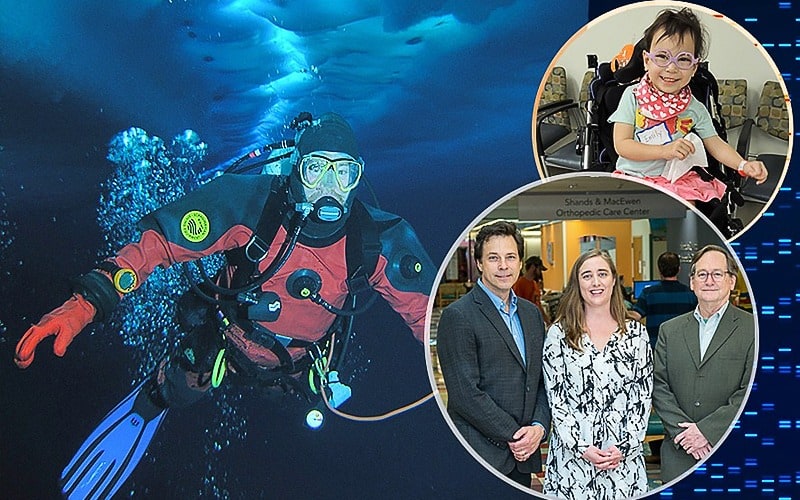 Research & Discovery
Research & Discovery
A Blog Devoted to UD Innovation, Excellence and Scholarship
Research & Discovery
A Blog Devoted to UD Innovation, Excellence and Scholarship
Deep data dive helps researchers predict spastic cerebral palsy
ABOVE: The pioneering technique UD Professor Adam Marsh developed to analyze the genetic activity of Antarctic worms is proving valuable for human health care research. | Photo illustration by Jeffrey Chase
Interdisciplinary team from UD, Nemours and Genome Profiling report new findings in understanding the condition
When University of Delaware molecular biologist Adam Marsh was studying the DNA of worms living in Antarctica’s frigid seas to understand how the organisms managed to survive—and thrive—in the extremely harsh polar environment, he never imagined his work might one day have a human connection.
But it turns out that the genome of these Antarctic worms is very similar to ours in terms of the number and types of genes present. And the pioneering technique Marsh developed to analyze their genetic activity is proving valuable for human health care research.
Marsh and a business partner established a biotechnology company to make that technique available for such study. Specifically, Marsh’s method uses next-generation genetic sequencing data to measure how cells control the way genes are turned on or off, a process known as DNA methylation.
Now, a Delaware team has released a study in the peer-reviewed journal BMC Bioinformatics showing that DNA methylation patterns in circulating blood cells can be used to help identify spastic cerebral palsy (CP) patients.





